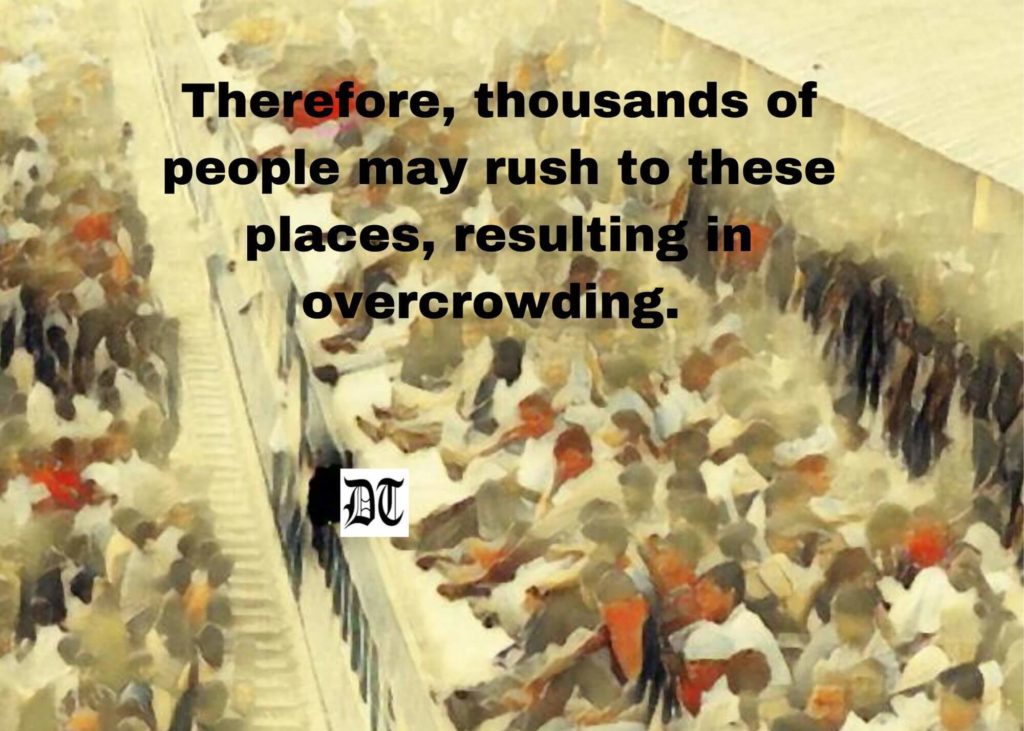Reading Time: 5 minutes
During pandemic people use religion as an excuse for celebration and mass gatherings. Can Bangladesh afford Eid-ul-Adha celebrations, asks Tabassum. An exclusive for Different Truths.

For the Muslim community this year, Eid-ul-Adha will be observed on 21 July 2021. It is another consecutive year for the Muslim community. Bangladesh has eased the strict lockdown from 14 July 2021 to 22 July 2021 to observe Eid-ul-Adha.
Bangladesh is struggling with the recent surge in the Covid-19 cases with the Delta and Delta plus variant. On 11 July 2021, Bangladesh witnessed a daily death toll of 230, breaking all records. The death cases were 203, and the positivity rate was 29.21% at the time of writing this write-up. Experts fear that after Eid-ul-Adha, the positivity rate may rise to 50%.
We might contact the new LAMBDA variant as a monkey on our back …
At the same time, Bangladesh is facing Dengue cases. And there are forecasts of floods. In India, preparations are going for the third wave. We might contact the new LAMBDA variant as a monkey on our back, if the new variant declared by WHO as ‘Matter of Interest’ is not contained in the sub-continent.
Practice Faiths
People have the right to practice their faiths. But during such pandemic circumstances, people use religion as an excuse for celebration and mass gatherings. Most animal sellers come to the cities in Bangladesh, and they sell directly in the designated and undesignated marketplaces.
Some sellers move around the cities to sell at the roadside or in commercial and residential areas. These sellers visit the cities en masse and return to their hometowns just before Eid. Such widespread rural-urban migration activities may further cause the situation to worsen in the country by facilitating disease transmission to COVID-19-less affected districts.
Other factors are overly concerning. These are transport of animals for sale from rural to urban areas, diminutive regulation of animal sales, advanced purchase of animals, freelance and non-professional butchers.
And the slaughter of animals in public places, crowds of spectators around the butcher to watch the slaughter and in-house social gatherings. And how it is possible to monitor and control these factors? Digital markets have taken place. But the question of affordability remains for the majority.
Keeping in view the low awareness rate in the rural and urban population, the containment of Covid-19 will be a significant challenge. Another challenge during this festival will be congested animal selling points, which could serve as budding sources of disease spread.

Disease Transmission
This year limited livestock markets in the selected places of the cities will be allowed. Therefore, thousands of people may rush to these places, resulting in overcrowding. Moreover, these markets lack compliance with safety and health protocols because of low literacy among animal handlers. These factors may enable human-to-human disease transmission and subsequent spillover to rural areas.
Furthermore, because of limited healthcare and administrative facilities in rural areas, preventive measures may be complex.
Furthermore, because of limited healthcare and administrative facilities in rural areas, preventive measures may be complex. The other significant factor is selling and buying of the animal skin. The leather business is a contributing factor in export.
Therefore, people will rush to go home, creating mass-gathering, as we have witnessed during Eid-ul-Fitr this year, which is the main reason for the present surge in the cases.
The Kingdom of Saudi Arabia is not allowing any pilgrims from abroad to perform Hajj. Oman government declared strict lockdown till 31 July 2021, which means no direct observing of Eid-ul-Adha.
“Religion is regarded by the common people as true, by the wise as false, and by the rulers as useful.”
Seneca, the Roman Stoic philosopher, statesman, dramatist once said, “Religion is regarded by the common people as true, by the wise as false, and by the rulers as useful”
Health Protocols
In Bangladesh, the ‘common people’, as described by Seneca, is a large part of the majority. Their failure to abide by the health protocols does not come from the faith.
Perhaps some think that after taking vaccination, they have become immune.
During the first wave, Bangladesh faced a lower mortality rate. So, people are not taking the threat of the possible upcoming Tsunami of the virus seriously. Because they lack awareness of the mutations and variants of the virus. Perhaps some think that after taking vaccination, they have become immune.
The so-called ‘wise’, as described by Seneca, choose to remain silent because religion is a danger zone, and no one wants to talk about it. They decide to be like ‘the statue of the three wise monkeys.’
The so-called “Rulers”, as described by Seneca, are not using religion during the pandemic. They also do not want to go to the danger zone of religion. And indeed, they do not want to interfere.
The one part of the people missing in Seneca’s quote is the Conservative and sensitive community with religious knowledge…
The one part of the people missing in Seneca’s quote is the Conservative and sensitive community with religious knowledge, as far as religion is concerned. They find it hard to adhere to the health guidelines. They should be reminded of the religious references.
The Prophet (PBUH) said, “If you hear about it (an outbreak of plague/pandemic) in a land, do not go to it; but if it breaks out in a country where you are staying, do not run away from it”. (Al Bukhari).
The Holy Quran
Two references from The Holy Quran should be cited to remind Muslim community for self-understanding and to prioritise life and safety. “Worse than the beast are those who do not understand (do not apply mind)” (Quran 8:22).
Allah (SWT) also tells us that “If anyone saved a life it would be as if he saved the life of the whole humanity” (Quran 5:32)
We are fighting against the invisible enemy of nature.
We are fighting against the invisible enemy of nature. No one knows at this moment how long this infallible law of nature will last. We can spend this year’s Eid-ul-Adha by staying where we are and can stop mass gatherings at the public transportation spots.
Making an appeal not to go home during the Eid-ul-Adha holidays is not a barrier on freedom of movement. Instead, it is a responsible act to prevent the spread of the deadly Delta variant. We have turned ourselves down once during Eid-ul-Fitr.
Now, the choice is ours. We can commit the same mistake in the ‘As You Like It’ ways. Or we can act like responsible ones by adhering to the health guidelines and saving lives, and helping the government make a halt to the upcoming devastation caused by Covid-19 with variants after Eid-ul-Adha.
Visuals by Different Truths













